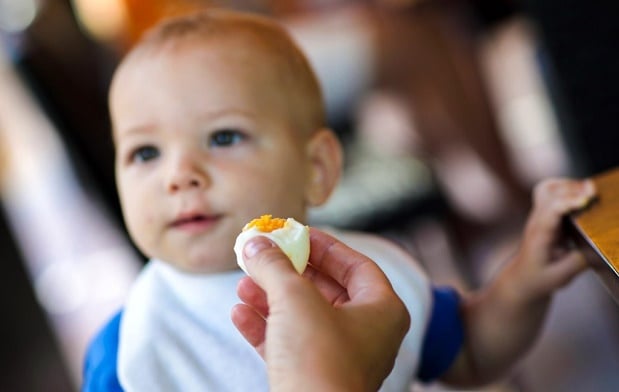Is egg for kids good on a daily basis? As a mum of a little egg lover, I’ve always wondered if my seven-year-old’s love for eggs might not be so good for his health in the long run.
This is why I researched on the matter and wrote this article about egg for kids, a few years ago. In essence, an egg a day is just fine for your child.
But very recent research now claims en egg a day is more than just fine. Egg for kids can actually help them grow taller and bigger.
The study
The study, “Eggs in Complementary Feeding and Growth,” was published online June 6 in the journal Pediatrics.
Lora Iannotti, lead author of the study, is also a leading expert on child nutrition at the Brown School at Washington University in St. Louis.
In 2015, Iannotti and her team conducted a randomized, controlled trial in Ecuador. In the study, 160 babies aged six to nine months were give a egg daily, for six months. They also received less sugar-sweetened food. A control group with kids the same age did not receive a daily egg.
The research team monitored the youngsters for any problems, such as allergic reaction to eggs. They also made sure the families were following the research plan.
The results
In some pretty amazing results, the research showed that eggs significantly increased length-for-age and weight-for-age scores in the group of kids who ate them.
In fact, eggs increased growth and reduced stunting by an incredible 47 percent.
“We were surprised by just how effective this intervention proved to be,” Iannotti said. “The size of the effect was 0.63 compared to the 0.39 global average.”
Egg for kids: Importance of good nutrition
Given that the first two years of a child’s life are crucial for their growth and development (stunting within this age range is irreversible), the result of this study are certainly valuable.
Eggs are cheap, tasty and they are essential in a large range of recipes. And even if a young child going through a fussy phase were only to eat an egg for one meal, this would still give him a good range of nutrients such as:
- Choline: for brain development, function and memory;
- Folate: produces and maintains red blood cells;
- Iron: carries oxygen to the cells;
- Lutein and Zeaxanthin: maintain good vision and protect the eyes against harmful UV rays;
- Niacin: promotes normal nerve function and helps release energy;
- Omega-3 fats: improve blood cholesterol;
- Protein: helps keep body strong;
- Vitamin A: protects against cancers;
- Vitamin B12: protects against heart disease;
- Riboflavin: helps keep body tissues healthy;
- Vitamin D: keeps bones and teeth healthy;
- Vitamin E: acts as an antioxidant;
- Zinc: promotes a strong immune system.
Having said this, it’s important to remember that little ones need a balanced diet and adding an egg as a complementary food to a well-rounded diet can certainly benefit a child in many ways.
The British Nutrition Foundation advises: “While eggs are a nutritious food to include, it’s very important that young children have a variety of foods in their diets. Not only is this necessary to get all the vitamins and minerals they need, but also to allow them to become familiar with a wide range of tastes and textures.
“A range of protein-rich foods should be provided when feeding young children, which can include eggs but can also feature beans, pulses, fish, especially oily fish, meat and dairy products.”
If you are concerned about egg allergies, monitor your child well when you first introduce eggs to his diet.
Also keep these eggy hygiene tips in mind:
- Be sure to eat fresh eggs with shells intact.
- Wash the outside of the egg shell before you crack it.
- While it is recommended not to give soft-boiled eggs to children, pasteurised eggs are the better option.
Remember: The expert recommendation is that you wait until your child is six months old before introducing solids.
The World Health Organisation recommends that until babies start solids, they should be exclusively breastfed.
This article was first published on AfricaParent.com
Copyright 2025 TheCable. All rights reserved. This material, and other digital content on this website, may not be reproduced, published, broadcast, rewritten or redistributed in whole or in part without prior express written permission from TheCable.
Follow us on twitter @Thecablestyle

